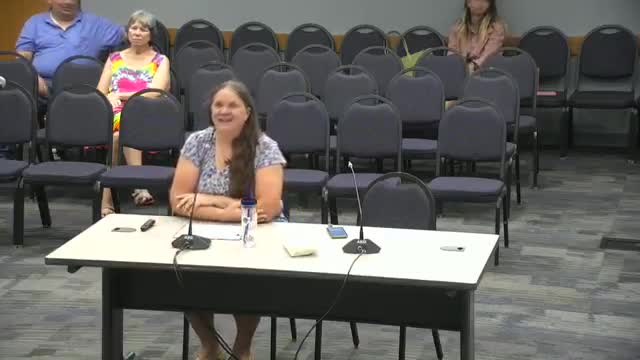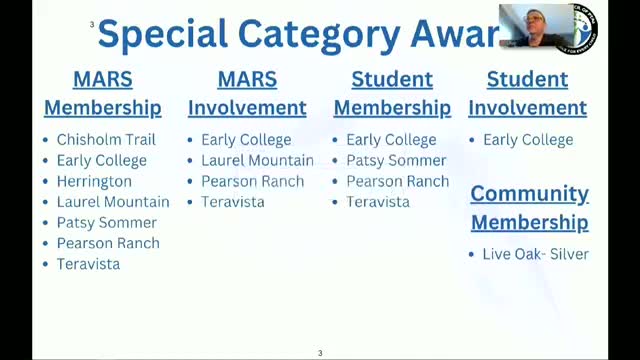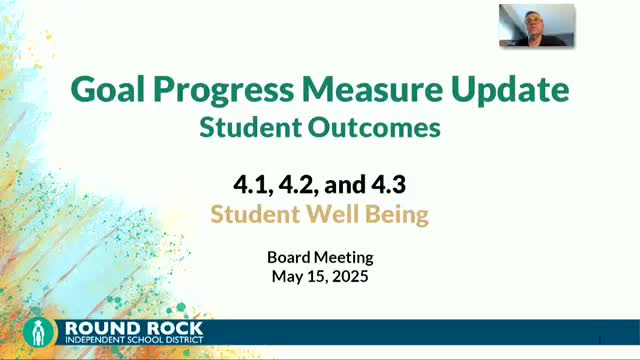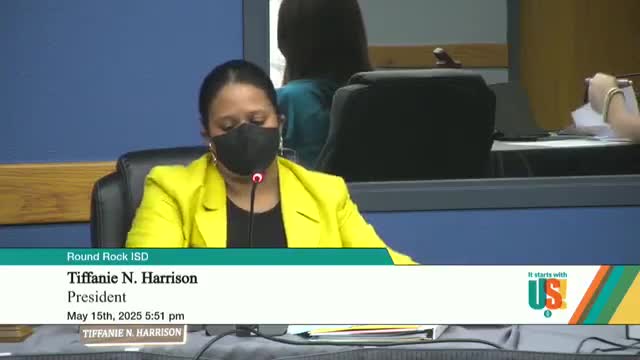Article not found
This article is no longer available. But don't worry—we've gathered other articles that discuss the same topic.

School health advisory committee urges standardized 45-minute recess, limits on using recess as punishment

Round Rock PTA reports membership surge, $20,000 grant to seed Title I feeding program

Round Rock ISD reports mixed results on student well-being; elementary gains, secondary lag

